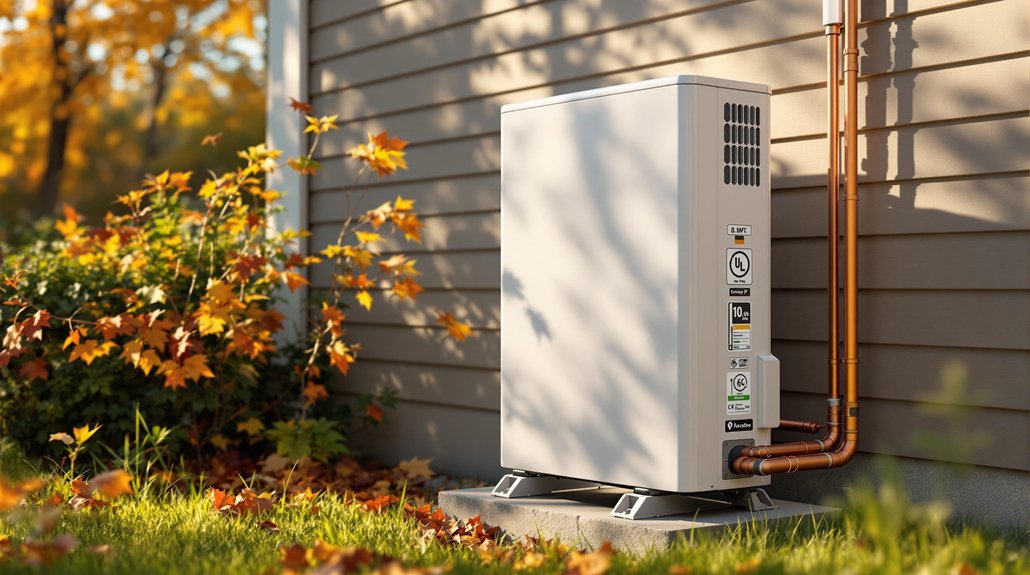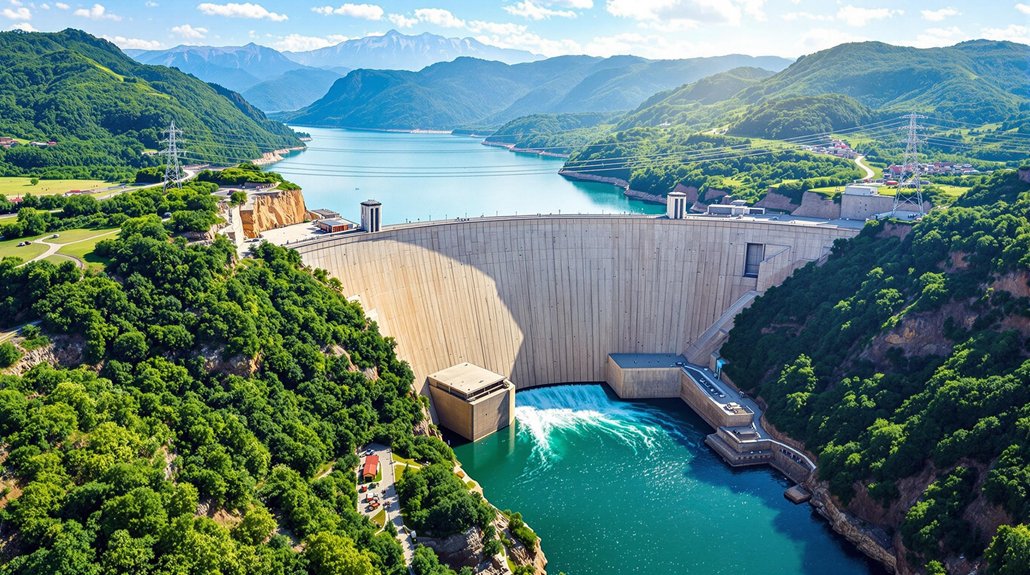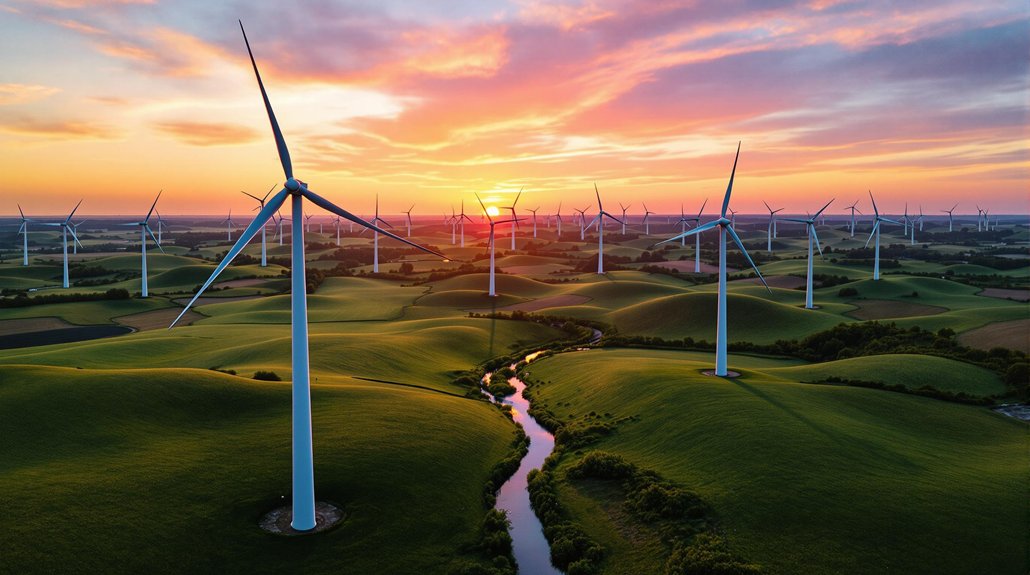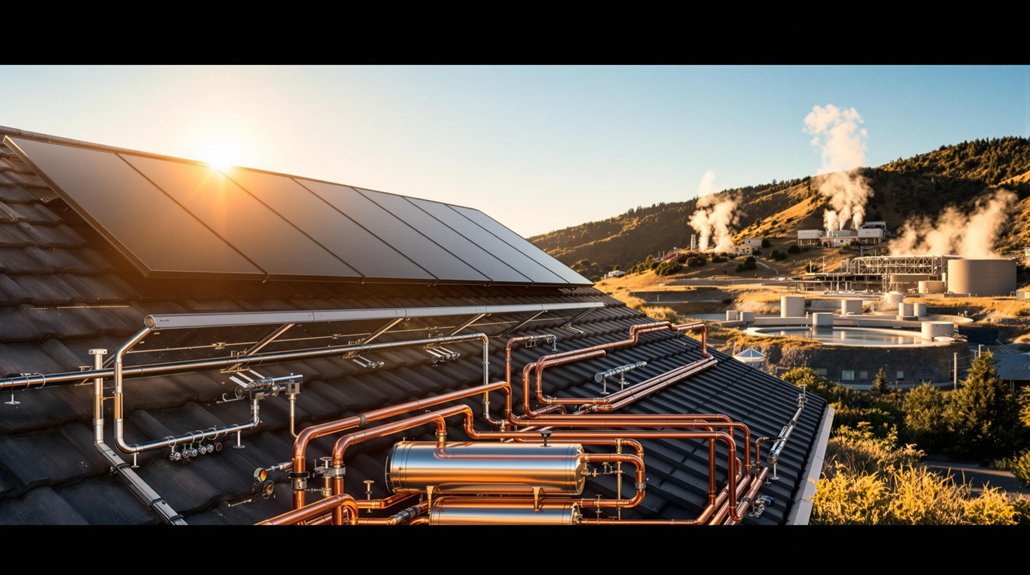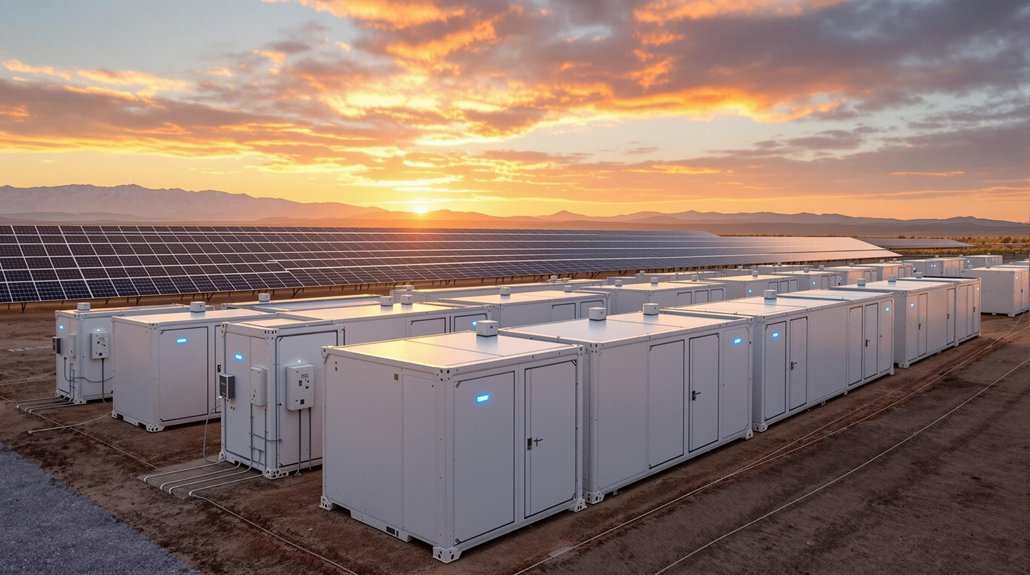Heat pumps deliver exceptional efficiency, operating at 300-400% compared to gas furnaces at 95%. They cut heating electricity use by up to 75% and reduce home energy bills by $300-$650 annually. These systems handle both heating and cooling while decreasing household carbon emissions by about 40%. With 15-20 year lifespans and compatibility with solar panels, heat pumps offer a quieter alternative to traditional HVAC. Government incentives make this investment even more appealing.
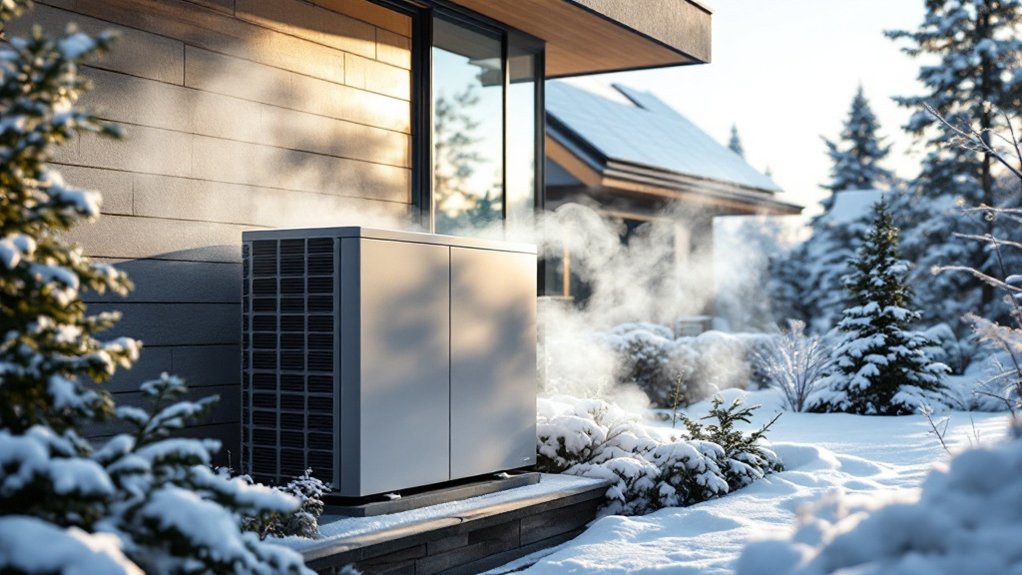
Heat pumps are changing how homeowners think about heating and cooling their homes. These devices offer remarkable efficiency, operating at 300-400% compared to gas furnaces at just 95%. This means they can cut electricity use for heating by up to 75% and reduce overall home energy use by 31-47%. Most households save between $300-$650 per year, with 62-95% of homes seeing lower energy bills.
While heat pumps cost more upfront, averaging $8,348 compared to $6,221 for gas furnaces, they’re the most cost-effective option for about one-third of U.S. households. Their long-term savings are significant, especially for homes currently using electric, oil, or propane heating. They also protect homeowners from fossil fuel price fluctuations.
Despite higher initial costs, heat pumps deliver substantial long-term savings, particularly for homes using electric, oil, or propane systems.
The environmental benefits are substantial. Heat pumps reduce household carbon dioxide emissions by about 40% and can cut residential greenhouse gas emissions by 36-64%. They reduce home gas consumption by 90% on average while only moderately increasing electricity usage. They don’t burn fossil fuels, which improves indoor air quality. By 2030, widespread adoption could reduce natural gas demand by 80 billion cubic meters and heating oil use by 1 million barrels daily.
One system handles both heating and cooling needs. Heat pumps maintain more consistent temperatures and provide better humidity control than traditional systems. The single system solution eliminates the need for separate heating and cooling equipment, simplifying home maintenance and reducing space requirements. They work well in various climates, including cold regions, and come in both ducted and ductless models for flexible installation.
Heat pumps typically last 15-20 years, with geothermal versions exceeding 20 years. They’re getting more efficient as technology advances and work well with solar panels for additional savings. Many qualify for rebates, incentives, and tax credits.
The outdoor placement of compressors makes heat pumps quieter than traditional HVAC systems. They run at a continuous low level instead of noisy on/off cycles, making them suitable for placement near bedrooms or outdoor living spaces.
Government support continues to grow, with expanding incentives from state and local governments. The Department of Energy promotes them over traditional heating systems, and they’re gaining market share, outpacing gas furnace sales in some regions.
Frequently Asked Questions
How Much Noise Do Heat Pumps Make During Operation?
Heat pumps typically produce 40-60 decibels of noise at 1 meter distance, similar to a refrigerator hum or normal conversation.
Outdoor units are usually louder than indoor ones.
Newer models tend to be quieter due to improved technology.
Noise levels depend on the heat pump’s type, size, and operating conditions.
Factors affecting noise include compressor operation, fan speed, installation quality, and weather conditions.
Do Heat Pumps Work Efficiently in Extremely Cold Climates?
Modern heat pumps work efficiently in very cold weather. They operate effectively down to -15°F and some even perform at -35°F.
These units maintain 175-200% efficiency at 5°F, using technology like variable-speed compressors and improved defrost controls.
Studies show they reduce heating energy by 35-50% in cold regions. While efficiency decreases in extreme cold, most homes still see significant utility bill savings year-round.
What’s the Average Lifespan of a Residential Heat Pump?
Residential heat pumps typically last 10-15 years, according to industry data.
Air-source models often reach the lower end of this range, while geothermal systems can extend to 20-25 years.
A unit’s lifespan depends on several factors including installation quality, maintenance frequency, local climate, and usage patterns.
Regular professional servicing can help systems reach their maximum potential lifespan.
Newer models with advanced technology may outlast older generations.
Can Heat Pumps Be Integrated With Existing HVAC Systems?
Heat pumps can be integrated with most existing HVAC systems. They work well as hybrid systems with traditional furnaces or can supplement current heating and cooling setups.
Homes without ductwork can use ductless mini-splits instead. Integration might require modifications to ductwork or electrical systems. Professional assessment is recommended before installation.
Proper integration can lead to energy savings of 30-50% while providing more consistent temperatures throughout the home.
Are There Government Rebates Available for Heat Pump Installation?
Multiple government rebates are available for heat pump installations.
Homeowners can access federal tax credits of up to $2,000 or 30% of installation costs through 2032.
State and local rebates range from $500 to $10,000, often through utility companies.
Income-based federal rebates offer up to $8,000 for low-income households, though they’re not widely available yet.
Many utility companies also provide additional incentives for heat pump installation.
